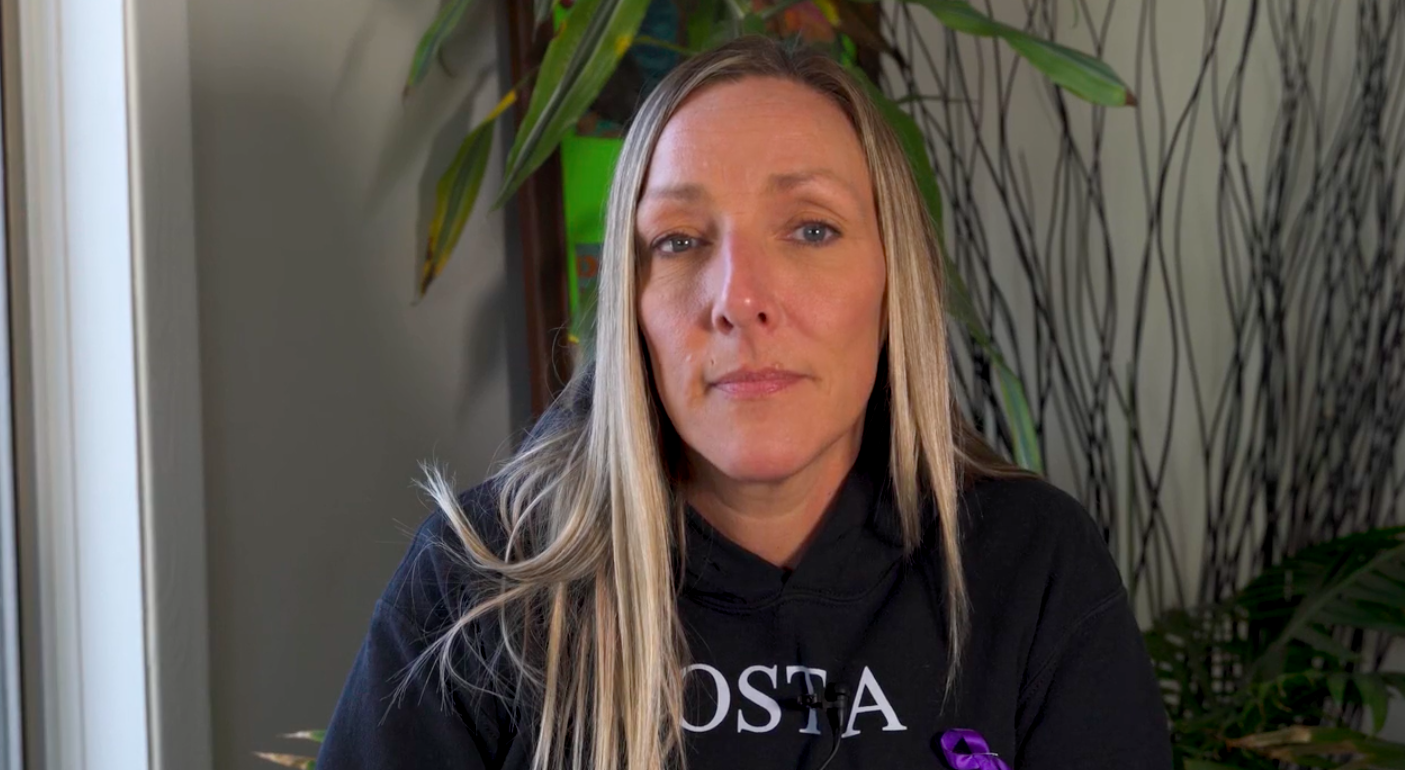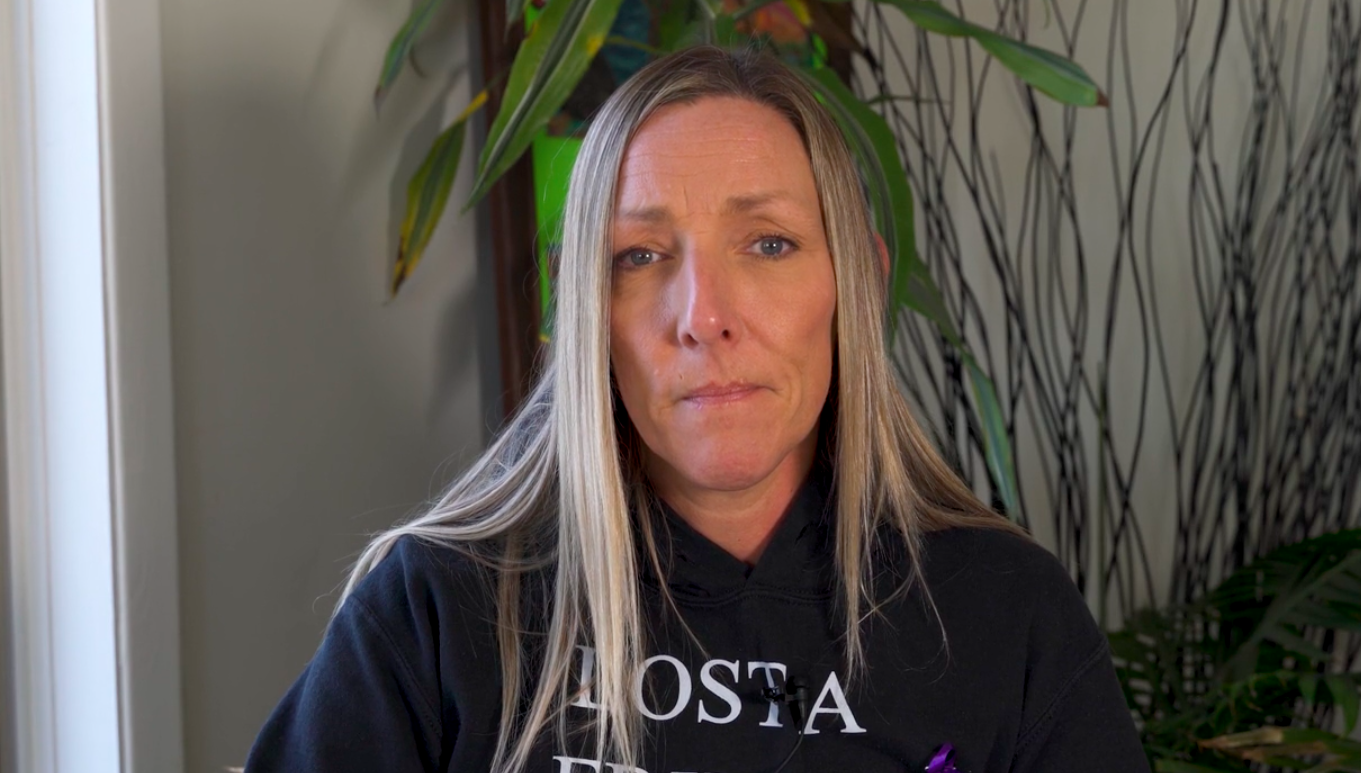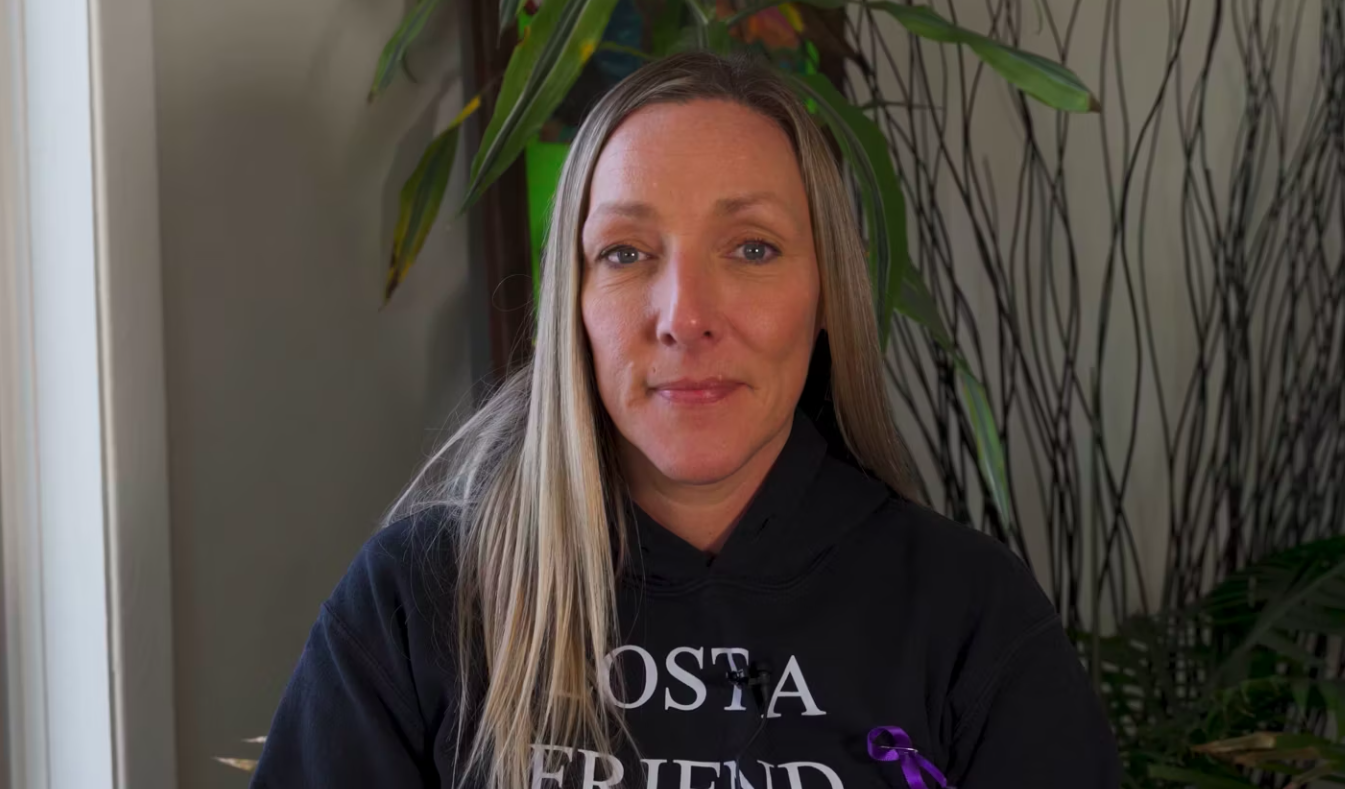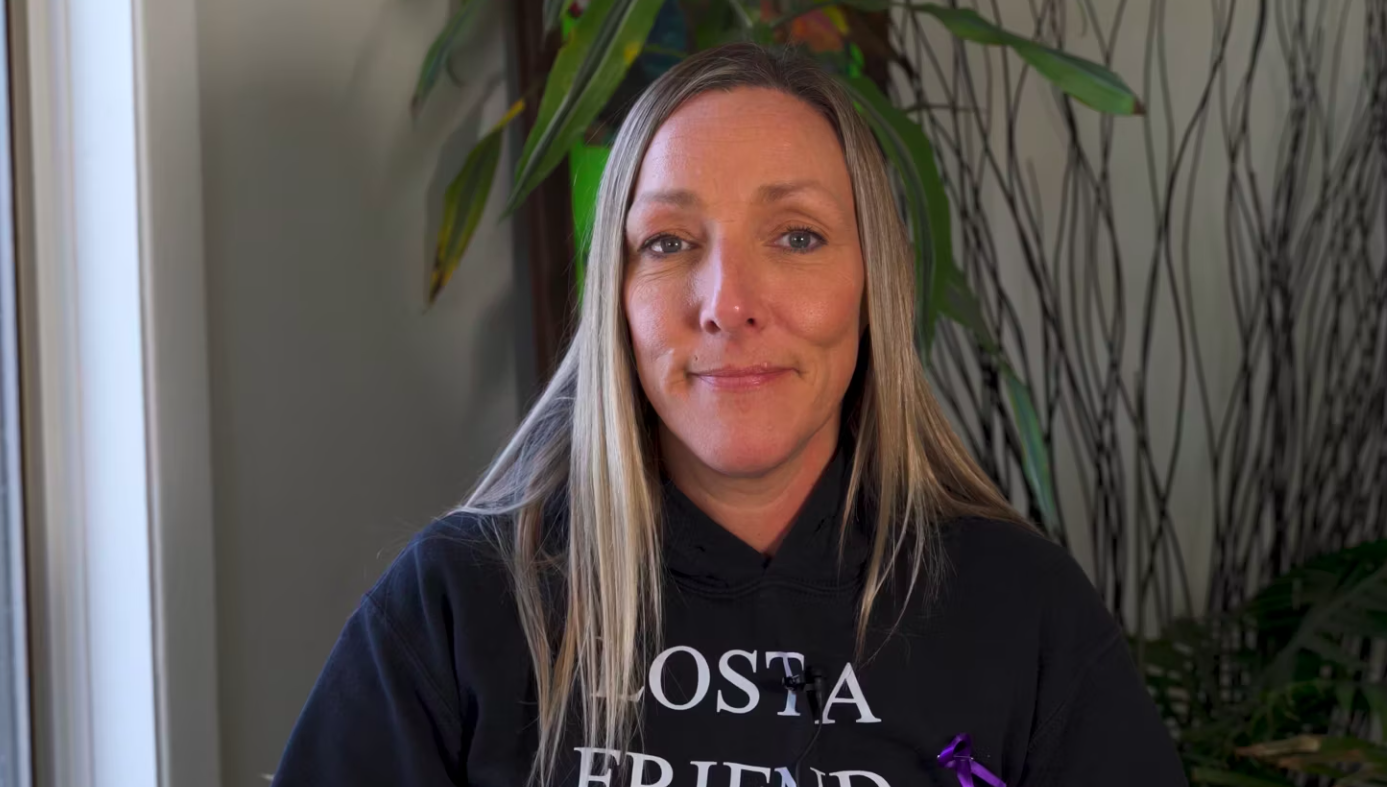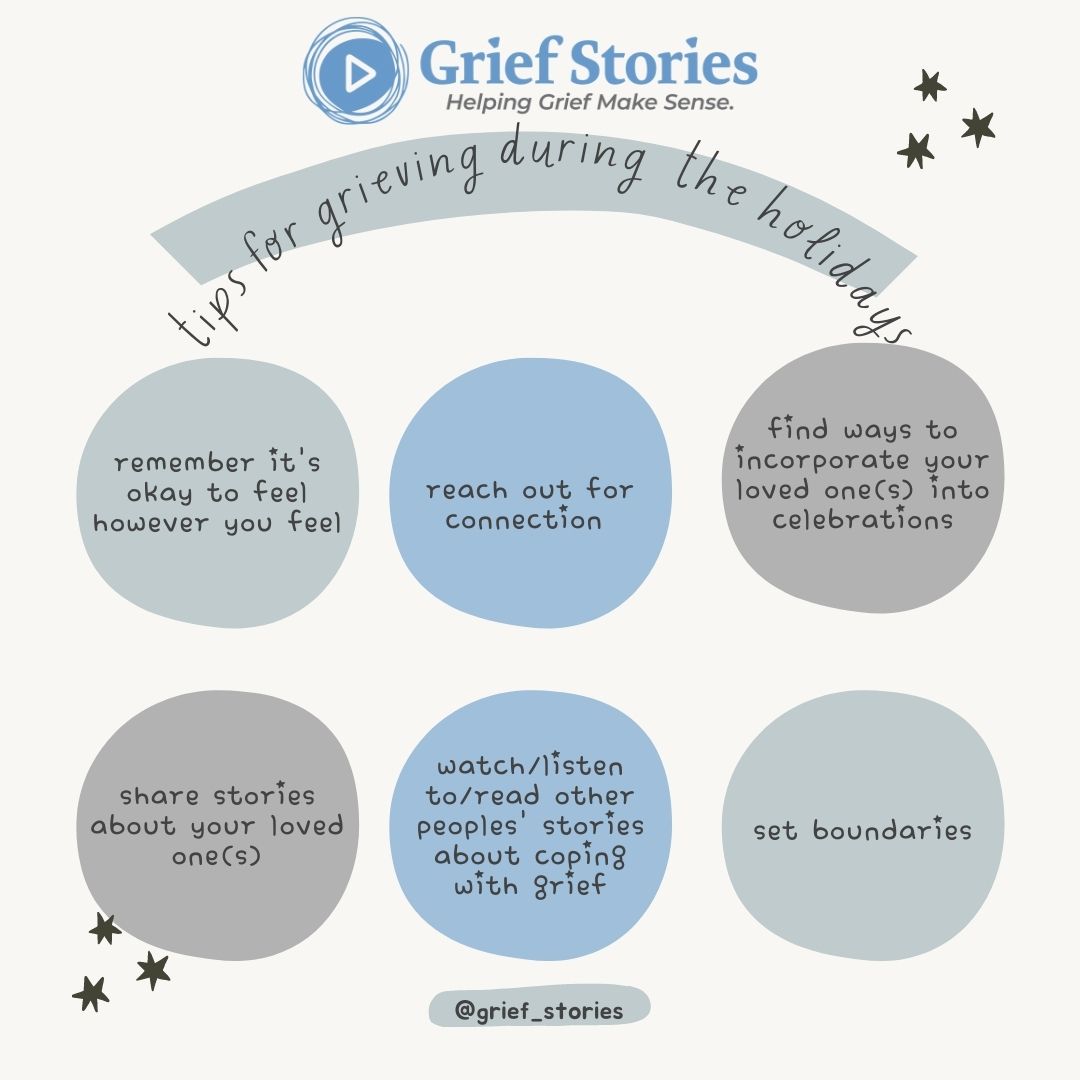Posts Tagged ‘death’
Reflections on Mother’s Day
By Jessica Milette, MSW, RSW
The signs of spring start to show up: the bird calls, sleepy daffodils and tulips waking up from their slumber, the trees beginning to bud ready to shade us with their leaves all season. And then, the flood of Mother’s Day emails start crashing into our inboxes.
Mother’s day is a holiday where we show appreciation and care for the maternal roles in our lives. However, this holiday can feel very overwhelming for those of us who are grieving the death of a mother figure, a mother grieving their child, or those of us grieving the loss of not being able to become mothers ourselves. The ads, commercials, and displays at the store, designed to be appealing and inviting become a painful grief trigger as we go about our day, our minds and hearts going to the person we’re grieving who isn’t alive to receive their flowers or gifts. Feeling as if our grief is heightened on holidays or times of celebration is a natural reaction to have. Often around these times of the year we gather with our loved ones, and our special person’s absence feels amplified.
Over the years, my grief reactions around mother’s day continue to change. At first, it was like a black looming cloud and I would avoid anything to do with Mother’s Day. Over time, I still have had hard Mother’s Days but the day looks much different. I may write to my mother, choose to ignore the day and do things unrelated to Mother’s Day, make a comforting meal from my childhood, or participate in a memorial event on Mother’s Day. Regardless of what I choose to do, or not do on Mother’s Day I make sure to give myself the space and compassion to rest and recover – grief can be exhausting.
There is no right or wrong way to grieve, nor how to go through Mother’s Day. Our relationship as mothers and children is unique, so too will be our grief. The following ideas may be how you’d like to take time to honour the person you’re remembering and grieving on Mother’s Day:
-Unsubscribing from Mother’s Day emails (some companies have a special opt-out message for folks to unsubscribe from these types of emails)
– Ignoring Mother’s Day altogether and doing something that fills you up (it could be going to a movie your person may have never wanted to go to or taking a long hike)
– Creating an altar with photos, keepsakes, and favourite things of your person
– Lighting a candle in their honour
– Writing them a card, updating them on your life and reflecting on your relationship
– Creating a new tradition or ritual to replace Mother’s Day
– Packing your day with connection and activities with trusted others who support you in your grief
– Having a day of nothing: allowing yourself to do what your heart is telling you (a bath, a nap, a cry)
Sometimes our grief may feel heaviest in anticipation of Mother’s Day or on Mother’s Day itself. As we enter May and Mother’s Day approaches, I wish for you to be compassionate towards yourself and move through the day in the way that fits your heart and relationship best.
A Million Other Things: Grieving a Drug Poisoning Death
By Jessica Milette, MSW, RSW
A parent sits across from me, anxiously wringing their hands. They will be returning to work after the sudden death of their child. “What if they ask? Do I tell them that they died of an overdose?” Terror flashes across their face. “What if they judge me? My child? What if they think I’m a terrible parent?” We take a moment to reflect on their child and I ask them to tell me about them. They pause, but then I notice their hands aren’t as tense as they cross them over their shoulders. “They were so thoughtful and gave the best hugs. Their smile would light up any room.”
Sister, father, son, niece, best friend – some of these words might be how you would describe your loved one who has died of an overdose or drug poisoning. People Who Use Drugs (PWUD) are not defined by their substance use – they are a million other things to those who love and miss them dearly. Drug poisoning and overdose deaths are stigmatized in our society. The focus is on how the person died, not who they are. Society still holds onto old notions and beliefs about drugs which come with a value judgment about people who use drugs, which further contributes to stigma. Not everyone who uses drugs is an addict and not all drug use is inherently problematic. People who use drugs deserve dignity and respect when we are remembering and honouring those who have died by overdose or drug poisoning.
More stigma means less support for people using drugs and those that support them. Much work has been done and continues to be done to dispel myths and stigma about addiction, drug use, and those who use drugs. Addiction is an illness: something that someone lives with, not something that defines them. These same values and judgments society has about drug use aren’t attached to folks who die of other illnesses. Society tends to view drug use and those who use them as a black and white issue. However, those who love someone who uses drugs weave a rich, colourful tapestry made of stories, reminders, and feelings about their loved one.
In my years as a grief therapist, those left behind want to share a special moment or memory about their loved one with a trusted other. When one is grieving a drug-poisoning death, this trust and sacredness without judgment offers the freedom to sit in the entirety of their grief—the grief they felt when their loved one was alive and when they died. Taking the time to use a loved one’s name in conversation, and asking the griever to share something about their loved one is a powerful tool for us on our grief journey. By initiating these types of conversations, we let the griever know that if they wish to, they can talk about their loved one. Sharing our stories are some of the most powerful ways one finds connection and healing through grief. It helps us feel less alone in our grief by sharing about what makes our person special. Those we love and grieve aren’t just a person who uses drugs – they are so much more. May each of us continue to share stories about our loved ones and the many facets their lives hold.
*DISCLAIMER* The scenario described in the article is a general reflection upon themes the author has witnessed through their grief counselling work and does not represent a specific individual in order to protect the confidentiality of service users.
Nicole – Using Art and Creativity to Express Grief
Nicole – Using Art and Creativity to Express Grief
Nicole discusses the work she does to allow access to creative outlets such as art hives and gardening.
Nicole – Pandemic’s Effect on Safe Spaces and Mental Health Access
Nicole – Pandemic’s Effect on Safe Spaces and Mental Health Access
Nicole discusses how the pandemic affected access to safe spaces and shelters for those living rough and living with addiction.
Nicole – Pandemic Leads to Increase in Drug Poisoning
Nicole – Pandemic Leads to Increase in Drug Poisoning
Nicole discusses the increase in drug poisonings during the pandemic due to a number of factors.
Nicole – Advice for Other Professionals Managing Grief
Nicole – Advice for Other Professionals Managing Grief
Nicole discusses dealing with repeated loss while working in community outreach, not being afraid to be human.
Nicole – Grieving as a community
Nicole – Grieving as a community
Nicole discusses the power of grieving together as a community. Finding connection and trust.
The Reflection Room® project: How storytelling supports processing grief
The Saint Elizabeth Foundation offers a project called the Reflection Room – a space for thinking and talking about dying, death, and grief.
The Reflection Room project is an evidence-based participatory art installation that was developed by researchers at the SE Research Centre and Memorial University in 2016. The project included a research component that evaluated the impact of Reflection Rooms as the project adapted over time to address changing needs.
The Reflection Room project was first developed to support people in community and healthcare settings to move from death-denying to death-discussing. From the first installation, the Reflection Room project has gone through three Phases of adaptation and continues to evolve.
Common elements across Reflection Rooms, whether they are set up to include an entire room, hallway, or corner of a room, include a quiet, calming space that invites visitors to read other people’s stories and post their own. The rooms are unstructured and unfacilitated, allowing visitors to engage with the space however they wish.
Over a five-year period from 2016-2020, the Reflection Room project was installed in 62 places across Canada, including in conferences, art galleries, hospices, and hospitals (Phases 1 and 2). Over a thousand stories were shared by individuals during their visits to these various Reflection Rooms. Results from the study from this period showed that storytelling can be an important part of grieving.
In 2020, Phase 3 of its adaptation and evaluation began with the SE Research Centre being asked to expand the reach of the Reflection Room to long-term care home communities in Ontario to respond to some of the accumulated pandemic-related grief in those communities. With the support of the Saint Elizabeth Foundation, Ontario Health Central, Family Councils Ontario, Ontario Centres for Learning, Research and Innovation in Long-Term Care, and Ontario Association of Residents’ Councils, over 50 homes signed up to host a Reflection Room®. In order to adapt to the environment of long-term care homes, an easy-to-set-up ‘kit’ incorporating instructions and materials (e.g., Reflection Cards, a red curtain to display Reflection Cards, candles, etc.) was developed and sent to homes free of cost. Overwhelmingly positive feedback has demonstrated that the Rooms support communities to work through grief by having a quiet space to rest and reflect, disclose emotions, process thoughts, and feel connected to others through sharing stories. The project often is complementary to other existing initiatives in long-term care homes such as palliative care committees and spiritual programs.
A collection of the stories shared over the course of the project is available to view on the Reflection Room website.
If you want to learn more about the project, contact foundation@sehc.com and listen to the Grief Stories podcast episode 64.
Neeliya Paripooranam, MSc, is a Project and Communications Manager at the SE Research Centre, overseeing the Reflection Room® project. Celina Carter, RN PhD, is a Senior Research Associate at the SE Research Centre. Paul Holyoke, PhD, is the Vice President, Research and Innovation at SE Health. Justine Giosa, PhD, is the Scientific Director, SE Research Centre and Adjunct Assistant Professor in the School of Public Health Sciences at the University of Waterloo. Hana Irving, MA, is the Director, Philanthropic Programs for the Saint Elizabeth Foundation.
Alongside
By Mike Bonikowsky
Grief is the great leveller, and the great divider. Everyone grieves, sooner or later, but no two people will experience it in the same way. No two bereavements are the same, and neither are any two consolations.
This is only more poignantly the case for people with developmental disabilities. Not only is their grief completely unique, but they are often unable to express it in traditional ways. How are we to support someone through the grieving process when they cannot, or will not, tell us what they are thinking and feeling about their loss? The answer is simple, and difficult.
In Christian theology, there is a concept called “the Holy Spirit”. This is the invisible piece of God that is everywhere all the time, with and within all people. The name given to this in the original ancient Greek is the “Paraclete”, literally, “The one who comes alongside.”
That is also our best, and only role, when supporting a person with a developmental disability to grieve. We must be the one that comes alongside. There is no closer place we can get to. We must be present, be with, perhaps not understanding or comprehending what the person we support is experiencing, but alongside them nonetheless. We must be there, ready to provide whatever we can discover of their unique need in grief.
But that coming alongside must begin before the bereavement. We must already have been there through the happier seasons of the person’s life, if we are to know them well enough to read the language of their grieving, and hope to know in what little ways we may support them. Supporting a person with a developmental disability to grieve is not a matter of coming alongside, but of remaining where we already were. It is a matter of knowing and being known by them, of being trusted. It is not so much a matter of doing anything for the person, but of being something for them: A safe place, a consistent and reliable presence. It is to be a fixed point in a confusing, chaotic world, someone of whom they can say: “When that person is here, I can expect things to be like this.” Only when this relationship is present and well-established in the ordinary times can we come alongside in the darkest, loneliest season on the person’s life, and hope to meet their unspoken needs.
And usually the answer to those needs is what it has always been: To simply be there with them, to prepare a meal for them and do the dishes afterward, to help them wash body and find clean clothes to wear. To open the curtains in the morning, so that when they emerge from the dark cave of their unique grief, for however short a time, they are greeted by a world that has not ended, and a face that they know, and that knows them.
Grief & Ice Cream
By John (Lewis) Clark, Author of upcoming book (Cook Away Your Grief).
When my wife of 18 years died in 2016, I became a single father missing the love of my life, and also had to learn how to raise two girls (13-17 at the time) on my own. I remember a conversation I had with my mother-in-law and oldest daughter that began as reminiscing over a person who became a lost love to all of us. We all talked about different aspects of my wife but shortly, it transformed into a “who meant more to her” fest.
All our points of view were out of love, but each of us had a different angle for different reasons. My mother-in-law saw my wife’s death as the loss of her baby girl, my daughter, as the loss of her mother and me, as the loss of my love. The conversation became elevated because not only was it a sensitive topic, but it became a comparison.
I dubbed this the “Umbrella Effect” because it felt like an umbrella that fit three but caused each of us to become wet on one side. When my mother-in-law made a comment that got me thinking, I had to back off my somewhat defensive position. She talked about how she felt when my wife was born. It soon made me think about how my wife felt when our babies were born, and I realized that I was solely the contributor in each case. The connections that my mother-in-law and my daughter had trumped my 18 years automatically. These two ladies had true connections with my wife. Love based on biology beats loves based on time and experiences, any day.
We all had a relevant case, but mine was getting weaker with every statement made. I had to understand that biological connections give a different justification for reminiscing. As a husband, I was torn between defending my love for my wife and understanding my mother-in-law and my daughter’s points of view. Although it hurt, I had to realize the source of the pain. I no longer wanted to be an unconscious contributor to their hurt. I had to realize that everybody mourns loss differently, and comparing only brought more hurt to an already sensitive situation.
To alleviate the tension, I grabbed three bowls from my mother-in-law’s cupboard, got the scooper, and three spoons. I pulled out the cookie dough ice cream, which prompted a truce. Peace is always achievable over ice cream. I now know that although people can be subjected to the same grief, they all process and see it differently. What is good is that everybody remembers her for the beauty she brought to our family. Although our conversation got contentious at times, it was clear that although we lost her, no one lost the love we have for her.
Tips for Grieving During the Holidays
By Alyssa Warmland
The holidays can bring up a lot of feelings, especially when you’re grieving the loss of a loved one. Whether it’s the first holiday season without someone, the holidays mark a time where someone you love died, or it’s just hard to be around celebration when you’re not feeling celebratory, December can feel heavy.
These are a few tips for grieving during the holidays:
Remind yourself that it’s okay to feel however you feel.
Feeling sad or mad? Feeling happy- and guilty for not feeling worse? Whatever comes up for you is normal. It’s okay to sit with your feelings, to give them some space when it feels right, and also to compartmentalize them if you feel like that’s best in the moment. You can acknowledge your feelings, put them in your pocket, and hold on to them during the family dinner if you want to. You can take them out of your pocket and spend time with them later. Grief is unique, and can show up in unexpected ways. It’s okay to feel however you feel.
Reach out for connection.
Sometimes we worry that we’ll make someone else upset if we mention our grief, or if we show up in a way that isn’t particularly festive. The truth is, the people who care about us want to hold space for us, even when we’re grieving. Connection can help us feel better.
Find ways to incorporate your loved one(s) into celebrations.
Did your dad have a favourite side dish your family always served at dinner? Did Oma make sugar cookies every year? Did your sister always compliment you when you wore red? Consider serving dad’s dish, or baking Oma’s cookies, or wearing red.
Share stories about your loved ones.
Sometimes it can be tempting to pretend the people we love haven’t died. As if, by not talking about them, we can pretend they’re still around. In fact, sharing stories about them can help honour them and to feel their presence. Remembering our loved ones out loud in connection with other people can feel healing.
Watch/listen/read other peoples’ stories and insights about grief.
At griefstories.org , we host stories and insights from people with lived experience in grief, as well as healthcare professionals’ insights on grief. These videos, podcasts, and blog posts are available for free 24/7, anywhere you can access the internet. Our hope is that this content may help you feel less alone.
Set boundaries.
Listen to how your body feels. You don’t have to do anything you don’t want to do. You are safe and you are worthy of operating with integrity toward yourself. Grief can be hard, and it’s okay to be gentle with yourself as you move in and through it – even during the holidays. Set whatever boundaries feel right for you. There are no rules here. You’ve got this.
Grief Literacy and Developmental Disability
By Carrie Batt, Grief Educator
Grief literacy has become a popular topic, yet it is a topic that is untapped within the disability community, specifically within the developmental sector. The sector supports and empowers people with a developmental disability and consists of families, their loved ones and service providers.
Within the sector there are very few conversations, education, or shared expertise about grief, loss, and disability. The pandemic brought to light the sheer lack of education and support that exists about grief, loss, and disability. My way of dealing with such a realization was to try to make a small change, which began by forwarding a proposal to my employer, requesting that we offer grief literacy sessions. The proposal was accepted, and we successfully offered four 1-hour grief literacy sessions, which reached a total of 20 participants. What we learned in offering these sessions was the value of learning new language to help in expressing and describing their grief experiences as, often, people with a developmental disability have grief stories that so often are unacknowledged and go unnoticed. Their grief histories are often extensive, and very painful. The painful history of the grief experienced amongst people with a developmental disability that begins with the atrocities of the institutions, the Huronia Regional Centre, The Ontario Hospital School, and The Orillia Asylum. The magnitude of such grief and loss has only recently been made public.
There is such an enormous amount of grief and the loss that until recently was unnoticed. Such unacknowledged grief within the developmental sector is far more common than ever imagined, especially when we include that of our direct support workers. Currently their grief is unheard of. Consider for a moment, supporting someone for ten years in their home, and when the supported person dies, cleaning out their room to prepare it for the next person to move in, and doing so without any recognition of your personal grief. Such scenarios play out daily within our developmental sector and just being expected to carry on with the work is the norm.
With that said, the reality remains that the developmental services sector can only benefit from receiving support and guidance from the bereavement support services sector. Such a partnership would help to bridge the gaps and begin dedicating resources towards, training education, and understanding about grief, loss and disability.



